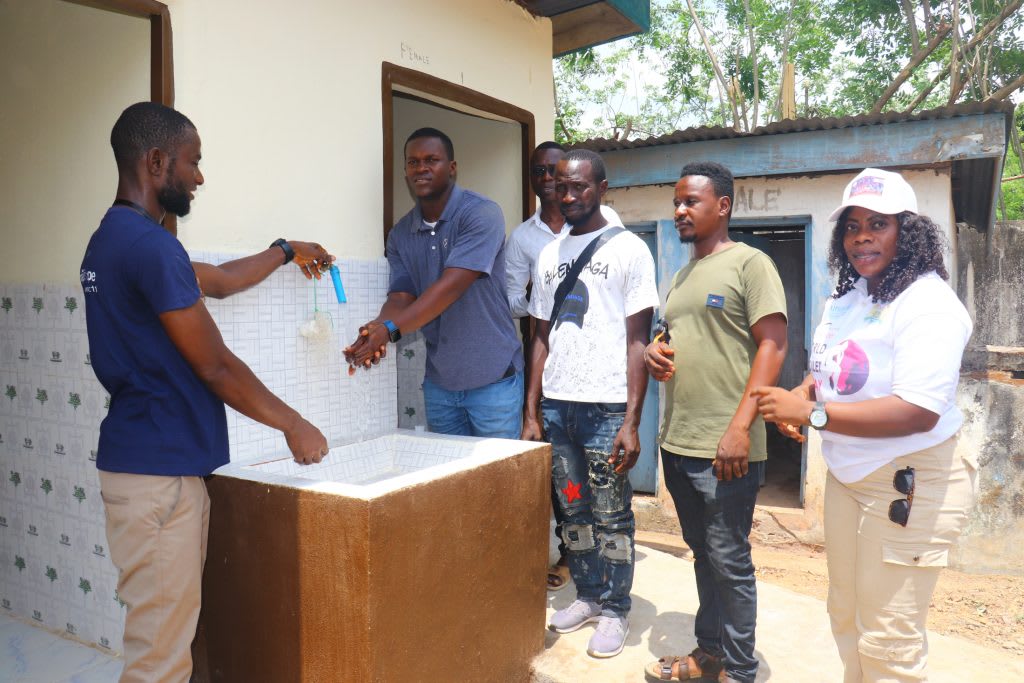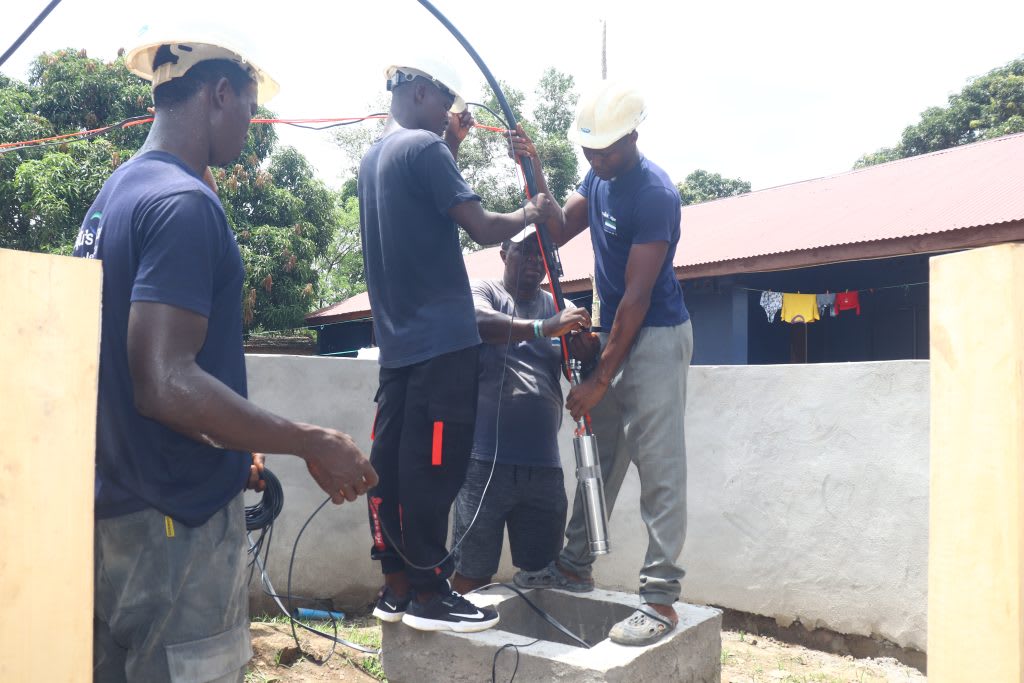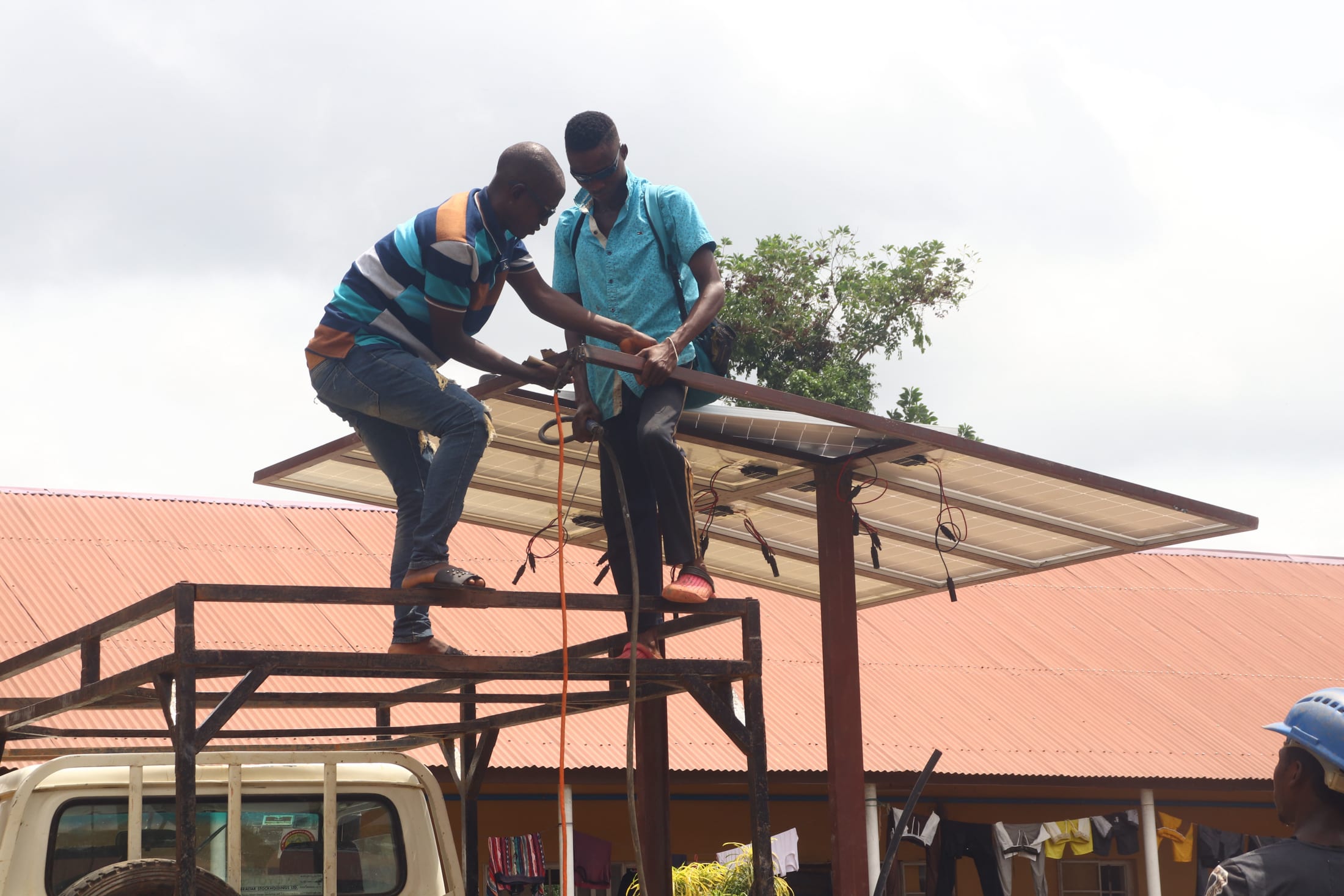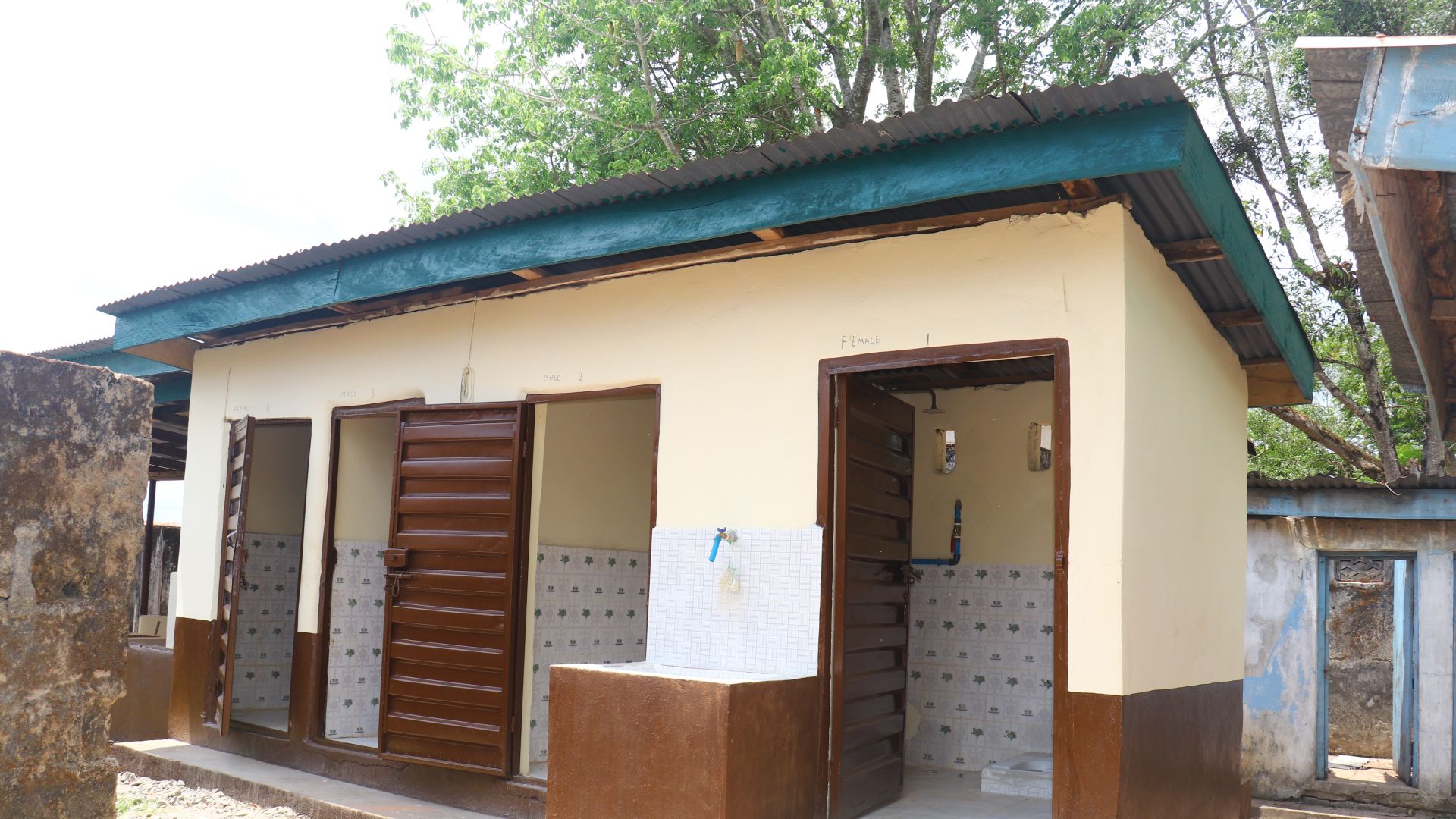Clean water is essential for maintaining good health. In regions like Western Kenya, where water scarcity is a pressing issue, the lack of safe, reliable water leads to profound consequences, affecting not only individuals but entire communities. Without access to clean water, people face preventable health issues that hinder their ability to thrive. This is especially true in healthcare facilities, where water is crucial for treating patients, maintaining hygiene, and preventing the spread of disease.

The Pepel Community Health Center.
Drinking unsafe water exposes communities to serious diseases like cholera, typhoid, and diarrhea—illnesses that thrive where water and sanitation access is poor. Those who fall ill seek healthcare, yet many clinics also lack clean water, forcing patients to face the risk of waterborne disease even in treatment settings.
Healthcare workers, like those in many rural areas, often face the same water shortages as the communities they serve. Many clinics struggle to meet basic hygiene standards because they lack sufficient water and spend a large portion of their time searching for and collecting water instead of caring for patients. Without piped water, it’s nearly impossible for staff to wash their hands during critical medical procedures like childbirth or surgery, increasing the risk of infections for both patients and healthcare providers.

Maternity Ward.
“I cannot tell the exact time I use to reach the water source, especially [since] the well that [is] located far away from the health facility. Sometimes, when the well that is close to us gets locked. I prefer walking long distances to access another water well, which takes time before I could return. Due to the distance, it takes me so long to reach the well and run [to] the health facility,” shared Isatu Conteh, a nurse at the Pepel Health Center.

Nurse Isatu Conteh carrying water back to the health center.
According to a WHO and UNICEF Joint Monitoring Programme for Water Supply, Sanitation and Hygiene (JMP), four in five healthcare facilities in Sierra Leone lack basic water services, while half of the rural population still struggles with access to basic water supply services. This situation leaves the health workers and patients with the daily struggle to find water to maintain good hygiene practices at the facilities.
Clean water is fundamental for maintaining hygiene and preventing infections. Handwashing, cleaning medical equipment, and sanitizing surfaces are vital practices that depend on water. In regions like sub-Saharan Africa, where water scarcity is a significant challenge, the inability to perform these tasks increases the risk of infections among patients and health workers.

Handwashing station in the Pepel Health Center.
Water is also critical for treating patients, especially in conditions where hydration is part of the treatment regimen and is needed to prevent infections and promote recovery.
In healthcare settings, reliable water access is just as important as clean water. While a protected water source can alleviate some of the effects of the water crisis, it’s the functionality of that source that truly matters. If a healthcare facility’s water source is seasonal or experiences long wait times, the facility is back to square one, facing the same challenges.
However, there is hope. A solar-powered pump system paired with a handpump creates a more resilient solution for water access. This system offers the healthcare facility dedicated access to water through in-clinic sinks for medical procedures while also providing a handpump for staff and patients on the premises at the clinic. This dual approach reduces wait times, ensures backup coverage, and meets the distinct needs of both medical staff and those seeking care—delivering reliable water access when and where it’s needed most.
Steps Toward a Solution
Our technical experts worked with the local community to identify the most effective solution to their water crisis. They decided to drill a borehole well and add a solar pump to supply both the healthcare facility and a handpump on the premises.
What Makes This Project Unique
Each project has its own unique needs. This project, in particular, showcases collaboration and ingenuity, as two water sources will work together to ensure uninterrupted access.
The facility currently has two non-functional waterpoints on its grounds: a protected dug well with a hand pump and an electrical submersible pump that fills a 5,000-liter storage tank. This stored water is then distributed by gravity to taps throughout the community health center, providing access for both patients and staff. Due to the non-functionality of both waterpoints, they have faced challenges in accessing sufficient clean water, limiting the level of care they can provide.
The plan is to drill two new boreholes. The first borehole will feature a new solar-powered submersible pump that will refill the existing 5,000-liter storage tank, thereby restoring access to the facility's gravity-fed water distribution system. The second borehole will be fitted with a handpump to provide the Pepel Health Center's staff and patients with direct access to water.
Why Do Both?
The combination of piped water and handpump creates a more resilient system of water access for the healthcare facility. Healthcare providers get dedicated access to in-clinic sinks for critical medical needs, while patients and other staff benefit from a convenient handpump location. This dual approach reduces wait times, ensures backup coverage, and meets the distinct needs of both medical staff and the people accessing healthcare—delivering reliable water access when and where it's needed most.
Health Center Education & Ownership
Hygiene and sanitation training are integral to our water projects. Training is tailored to each health center's specific needs and includes key topics such as proper water handling, improved hygiene practices, disease transmission prevention, and care of the new water point. Encouraged and supported by the guidance of our team, a water user committee comprises a community health volunteer, the staff in charge of the clinic, a community leader, and the health center board representative. They assume responsibility for maintaining the waterpoint, promoting safe hygiene and sanitation practices, and keeping handwashing stations well-stocked.
Safe water and improved hygiene habits foster a healthier future for everyone in the community.

 Solar Pump
Solar Pump
 Rehabilitation Project
Rehabilitation Project


























